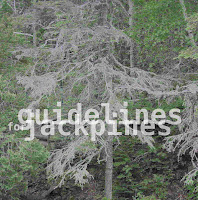Wednesday, June 22, 2011
Tuesday, June 07, 2011
Thought-like-dream
First, this is going to be about language, just for context.
Dreams are not the same as thought. But, suppose that we allow that they are very similar to thought.
Before that step, though, let's describe thought in this way: the sort of organic thing we imagine is in our minds without the need of language, though entwined with language and words. The thing that, when words are spoken, and we look at the person who hears them, and see a particular expression, we say, "ah, I see, he or she understands it." We mean perhaps that a particular "thought" has been engaged in this person by the words.
If we define thought in that way, then it is more apparent why dreams are like it. Dreams we might consider to be an example of approximately what it would be like to think without words or language. Words appear in dreams, certainly, but it would be hard to say that dreams are governed by language in the way that it might be said conscious thought is governed by language.
It is not necessary to say that dreams are directly analogous to thought, or that there are not other ways to define thought or thinking. In fact, if we carefully defined thought, we might conclude that it was entirely different from dreams. However, what we are talking about as "thought" above is still a phenomenon related to language as a tool for communication and expression.
Now, all that to say, given this sketched out framework, if dreams are like thought, what does that say about how language functions? I mean, let us say our "thinking" is, like dreams, associative, imagistic, immersive, and it sort of, shall we say, has a skittering kind of way about it. How does that fit into a scenario of language? That is, we may in a sense isolate thought from language by way of this analogy, and the question then is whether this situation sheds light upon the function of either thought or language.
This is still something I am considering, but it seems to me possible to suggest an explanation for what is happening when, shall we say, you are reading a certain passage. You read it through once, and you read each word, but your mind can't "focus" so as to grasp the whole meaning. Certain things happen to you for 5 years, and you return to read this passage again. This time, the passage is "alive" with meaning, as it were, and while you read it, your mind becomes hyperfocused so that if a person comes in and greets you, and you are unaware of it.
If you were to call our "thought-like-dream" an element, in the first case, you would say it was not present, and in the second, that this element was present, but saturated only the language of the passage, and was empty from the language of the greeting. The idea that language is a special habitat for "thought-like-dream" helps explain certain phenomenon surrounding language. But, before going further, I need to understand why this duality of thought and word was dismantled by philosophers such as Wittgenstein. But, I think that has more to do with the belief that there was an "idea" of red that the word "red" pointed to.
The whole enterprise of this post may be another attempt to get at the idea of "memory vocabulary" and the immersive aspect of the syntactic arrangement of words. I would like to think things could start to build on each other though.
Monday, June 06, 2011
anecdote of the four-eyed fish
Linkit said
when i got to this upper edge
that's when
i started to want
some new eyes

